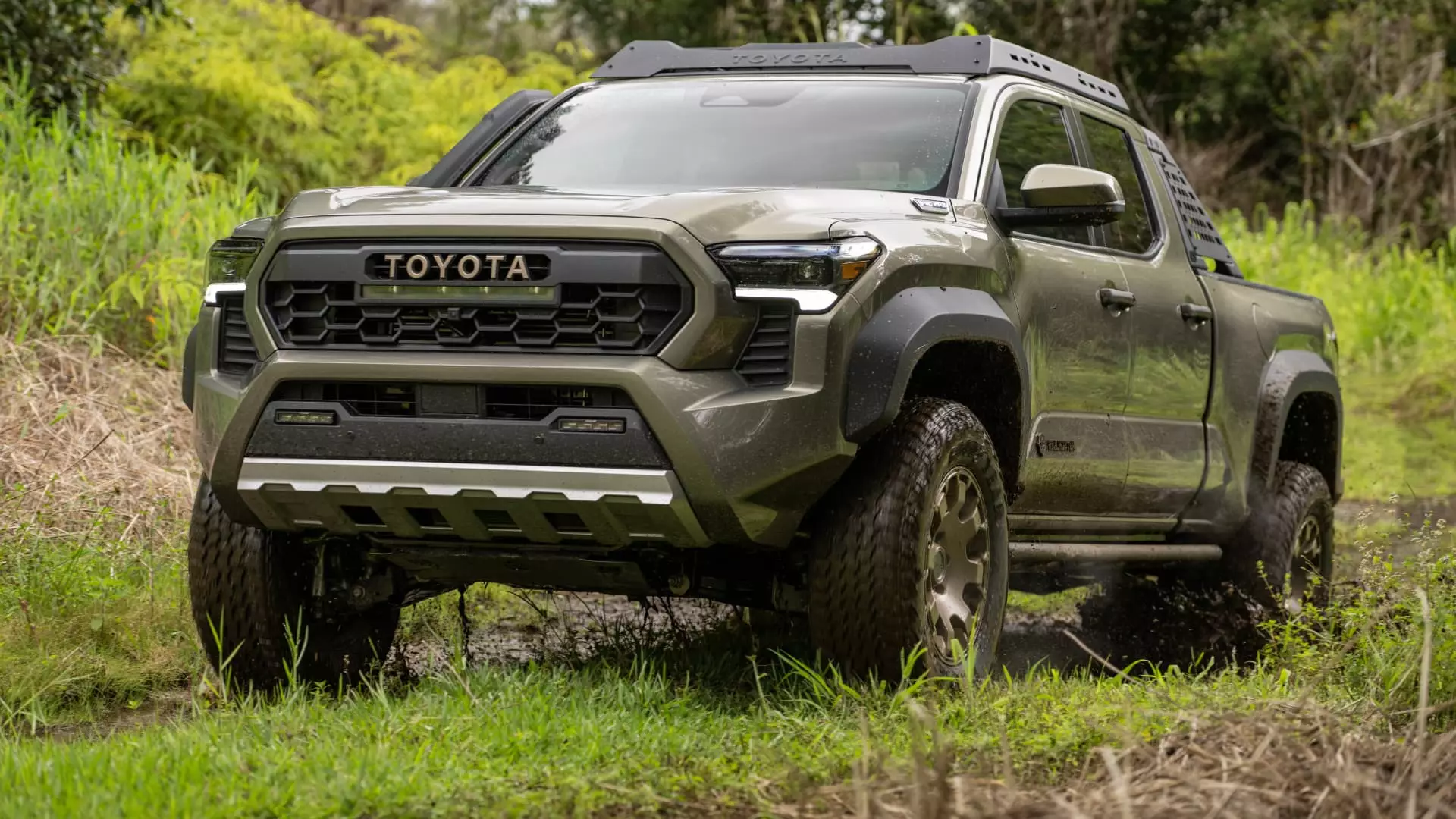Toyota Motor is currently in the process of evaluating an expansion of its U.S. truck lineup, with the possibility of introducing all-electric or plug-in hybrid electric versions of its popular Tacoma and Tundra pickups. The decision-making process is primarily driven by expected customer demand and the tightening federal emissions and fuel economy regulations. Jack Hollis, executive vice president of Toyota Motor North America, emphasized the importance of understanding what customers are looking for in order to make informed decisions regarding the lineup expansion.
While Toyota has previously considered a broad lineup of battery-electric vehicles (BEVs), including a midsize pickup model similar to the Tacoma, the recent discussions have introduced the concept of plug-in hybrid vehicles (PHEVs) as well. The company’s significant investment of $1.3 billion in a Kentucky plant to produce a new all-electric, three-row SUV for the U.S. market indicates a clear commitment to embracing electric vehicle technology. Additionally, Toyota’s plan to produce a BEV version of its small Hilux pickup for global markets highlights the brand’s innovative approach towards electrification.
As the automotive industry shifts towards electrification, Toyota is carefully considering the potential of introducing both BEV and PHEV versions of its Tacoma and Tundra trucks. While the Tundra underwent a redesign for the 2022 model year, followed by the Tacoma last year, the company is actively exploring the best mix of electric and hybrid technologies for its truck models. Hollis acknowledged the importance of evaluating the suitability of BEVs and PHEVs for each truck model, as well as for other vehicles in the lineup such as the 4Runner or Sequoia SUVs.
Despite the growing popularity of electric vehicles, there are currently only five all-electric pickup trucks available for sale in the U.S., with prices predominantly in the luxury vehicle range. The sales of these electric pickups have slowed down after an initial rush by automakers to introduce them to the market. In contrast, there are no plug-in hybrid electric pickups currently on sale in the U.S., but Stellantis’ Ram brand is expected to launch an “extended-range” plug-in vehicle later this year, utilizing an electric generator to power the engine.
Toyota is not alone in reassessing its product portfolio in response to the slower-than-expected adoption of electric vehicles and the revised emissions regulations introduced by the Biden administration. Other automakers, such as Hyundai, are also reevaluating their plans to exclusively produce all-electric vehicles. José Muñoz, Hyundai president and global chief operating officer, emphasized that “everything is on the table” as the industry navigates the transition towards electrification.
Toyota’s potential expansion of its U.S. truck lineup to include electric and hybrid models represents a strategic move towards embracing emerging technologies and meeting evolving customer demands. By carefully evaluating the feasibility of introducing all-electric and plug-in hybrid versions of its popular truck models, Toyota aims to stay competitive in a rapidly evolving automotive landscape characterized by a shift towards electrification.


Leave a Reply